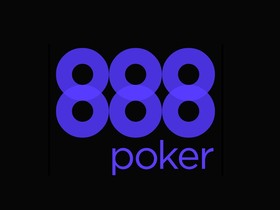Loto-Québec has a commercial activity mandate, which is to generate revenue for the Québec government through gaming activities, but they are also responsible for promoting responsible gaming — 'like asking Dracula to supervise a blood bank.’
When Loto-Québec launched its Espace Jeux igaming platform in December 2010, the provincial lottery thought it would be better equipped to control or discourage illegal online gambling by offering a “safe and honest” space for igaming, including online poker, in Québec.
Loto-Québec was also put in charge of managing responsible gaming efforts in the province.
But an online gambling task force formed by Québec’s provincial government reported four years later that the igaming model adopted in the province — where Loto-Québec holds a monopoly on legal online gambling — isn’t doing a good job of discouraging players from visiting illegal sites for online poker and casino gaming.
“Three years later, the data does not support the predictions of the socioeconomic hypothesis [for the monopoly],” the task force wrote in a 206-page report, Online Gambling: When Virtual Reality Catches Up With Us, which it presented to the Québec government in 2014.
“Loto-Québec’s gaming offer seems safe and honest, but certain limits have been raised with regard to responsible gaming. We find it inappropriate that gaming compliance assurance and control measures in terms of security, integrity, and liability are managed solely by Loto-Québec because it’s a Crown corporation that self-regulates.
“This way of proceeding is not in line with best practices observed in other jurisdictions.”
Nathalie Bergeron, spokesperson for the Québec Online Gaming Coalition (QOGC), an industry-led group that wants to encourage the current Québec government to adopt a regulated market for iGaming similar to neighboring Ontario, told Poker Industry PRO in an exclusive that an independent regulator would be a more appropriate entity in charge of responsible gaming in the province since Loto-Québec functions as an operator.
“Loto-Québec has a commercial activity mandate, which is to generate revenue for the Québec government through gaming activities,” Bergeron told PRO. “But they are also responsible for promoting responsible gaming. In 2014 [the task force] pointed out that this was nonsense — it was 'like asking Dracula to supervise a blood bank.’ Their words, not mine, but I think the image speaks for itself.”
Ultimately, one of the reasons why Québecers continue to play on sites other than Loto-Québec is perhaps that these sites respond much better to the desires of internet users in general and the youngest [players] in particular.
Dr. Louise Nadeau, a psychology professor from the University of Montréal, served as the lead researcher for the government-funded report. Additional contributions came from researchers at the Université de Sherbrooke and Concordia University.
Nadeau and her colleagues hoped to educate themselves on why players in the province continued playing online poker at illegal sites rather than on Espace Jeux. They found that many players didn’t know the sites were illegal, and many others didn’t care.
But the task force also suggested that Québec’s closed market could explain why Espace Jeux was having difficulty attracting players. In Québec, online poker players want “borderless access to other players” from around the world.
In a nutshell, Québec players were attracted to illegal sites — such as 888poker, Full Tilt Poker, partypoker, PokerStars, and William Hill Poker, the five biggest private operators at the time — for bigger prizes and better competition.
“Ultimately, one of the reasons why Québecers continue to play on sites other than Loto-Québec is perhaps that these sites respond much better to the desires of internet users in general and the youngest [players] in particular,” the task force wrote in its report.
QOGC hopes to convince the Québec government to consider adopting a regulated online poker market similar to neighboring Ontario. The coalition says the task force’s report was used by Ontario regulators as a playbook to create their regulated market.




